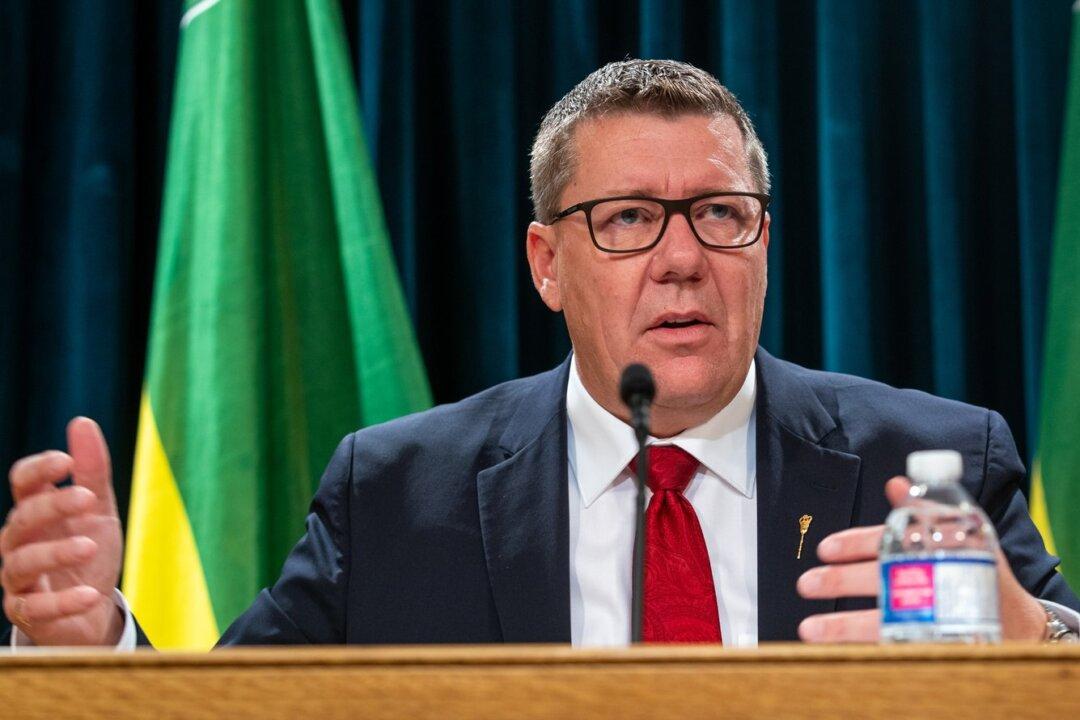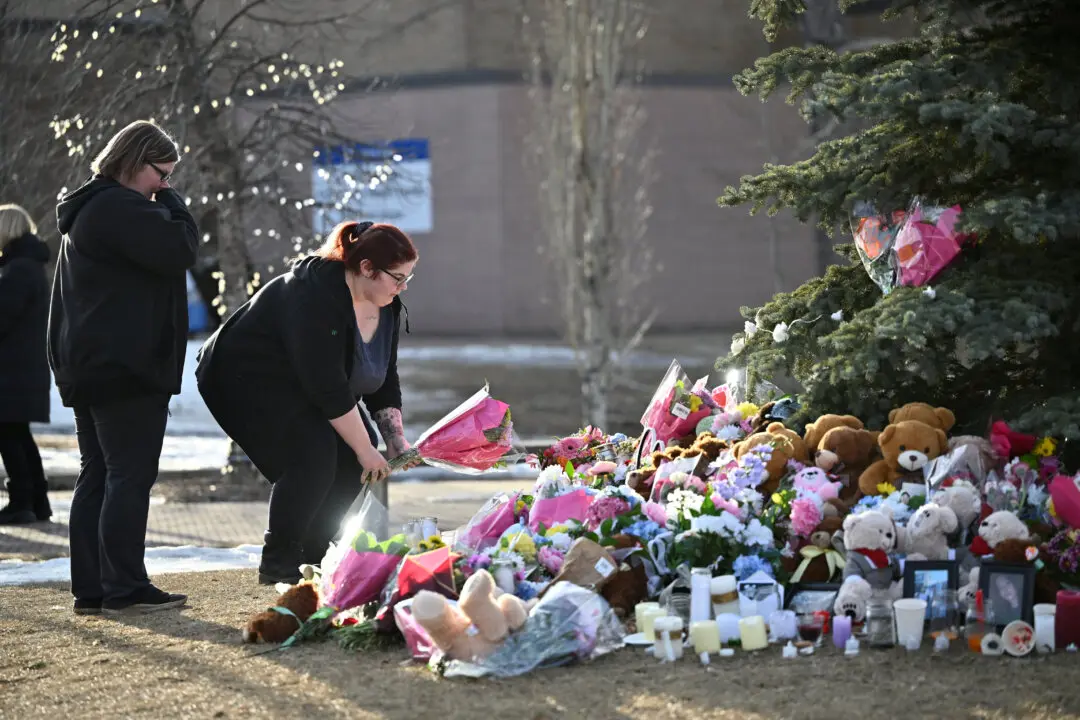Saskatchewan Premier Scott Moe says his province was kept in the dark about Ottawa’s emissions cap announcement at the United Nations Climate Change Conference (COP28) in Dubai on Dec. 7.
In a video clip posted on social media on Dec. 9, Mr. Moe said no details about the policy or announcement were shared with his energy minister when he spoke with federal Environment Minister Steven Guilbeault on the Liberal government’s plans for the oil and gas industry.





